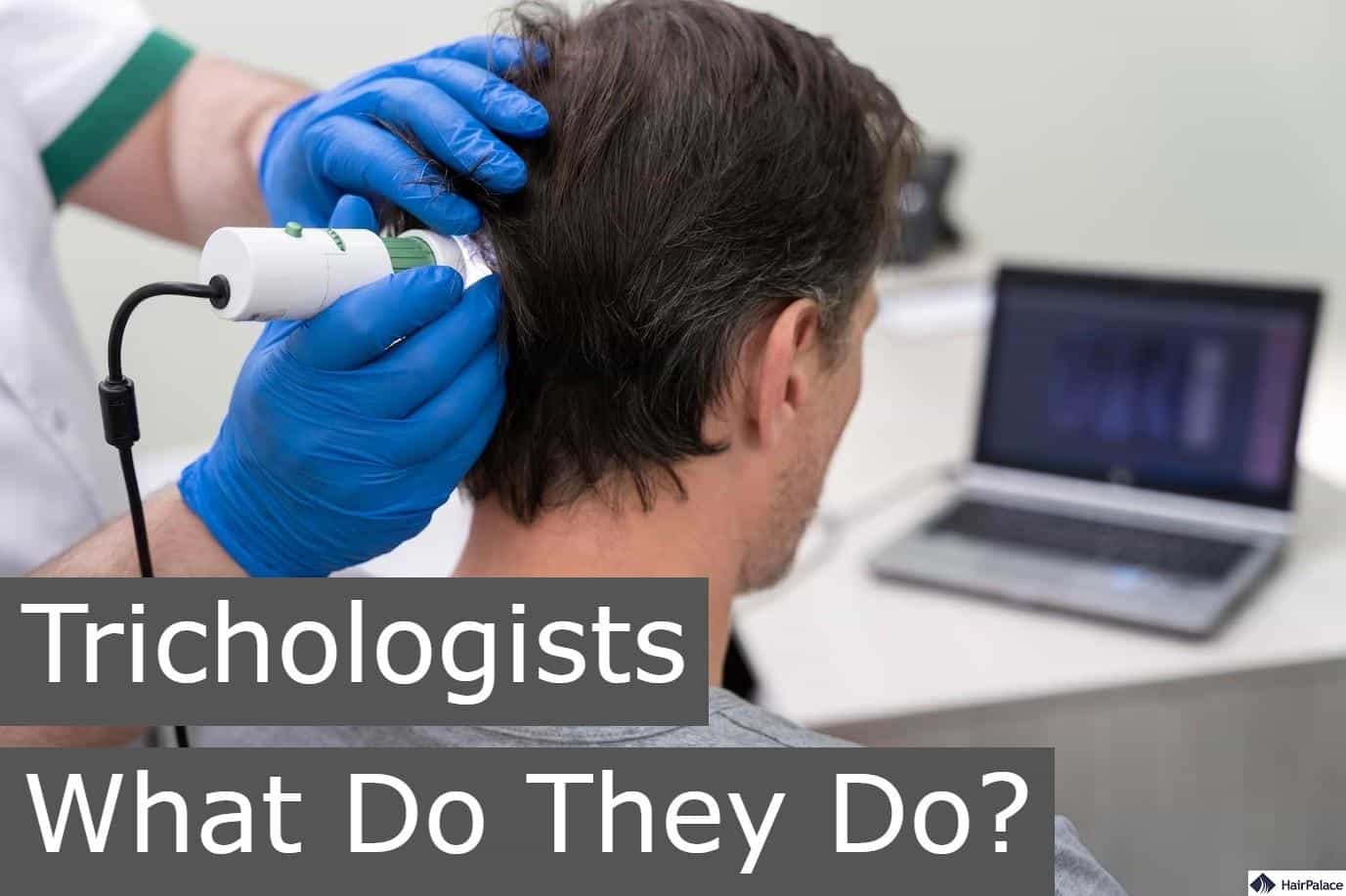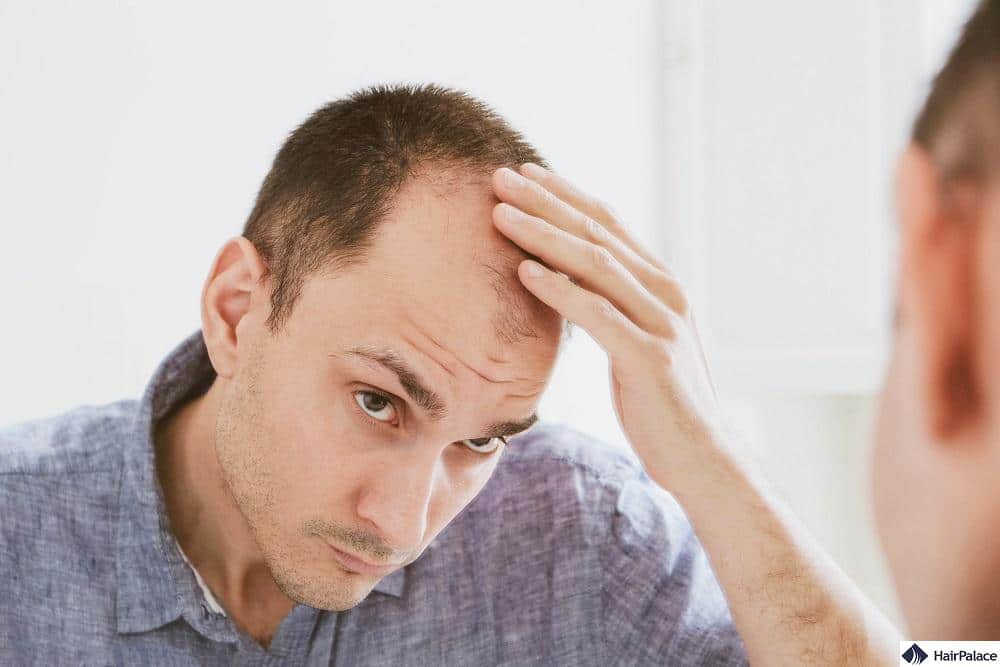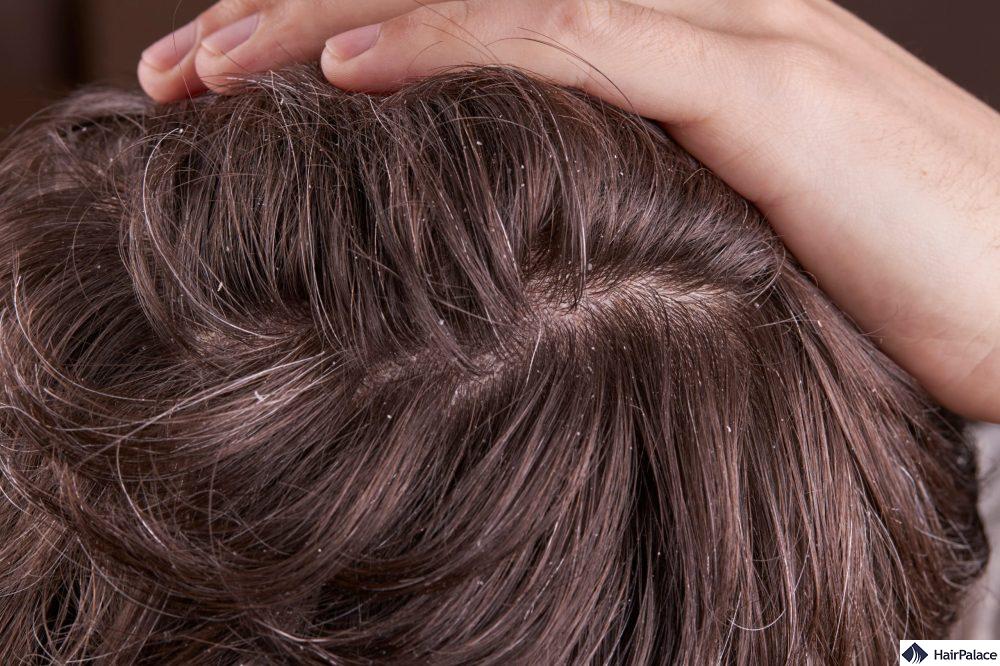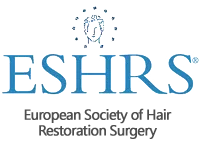Trichologists: What Do They Do?

Trichologists are specialists who focus on diagnosing and treating hair and scalp disorders.
They deal with a variety of issues, including hair loss, dandruff, scalp infections, and other conditions.
Trichologists conduct detailed examinations and may use tools like scalp microscopes to assess hair and scalp health.
They provide personalized treatment plans that can include topical treatments, medications, dietary recommendations, and lifestyle changes to promote hair growth and overall scalp health.
In this post, we’ll explore what trichology is, what it involves, and how it can help to solve certain conditions.
- What is trichology?
- What does a trichologist do?
- What hair problems does trichologists solve?
- Trichology shampoo
- What to expect from a consultation with a trichologist?
- How does a trichologist reach a diagnosis and what is the next step?
What is trichology?
Trichology is the study of hair, scalp, and issues that affect them. The origin of trichology meaning has to do with the Ancient Greek word for hair (thríx).
While the Institute of Trichologists was established in 1902, it’s still going strong more than 100 years later.
Certified trichologists will be registered with a governing body, such as the Institute of Trichologists, and may be members of the Association of Registered Trichologists (ART).
They are required to follow strict codes of professional conduct and ethical practice.
What does a trichologist do?
Listen to renowned trichologist William Gaunitz explain what he does exactly.
A trichologist’s work involves understanding, diagnosing, and treating patients affected by hair and/or scalp conditions.
Trichologists build their understanding of the human hair and scalp through exhaustive research.
This empowers them with the insights they need to recognise a plethora of issues that patients may experience and to make an accurate diagnosis.
Some patients may feel uneasy visiting their doctor to discuss changes to their hair if they feel it’s not something their GP can treat.
But this is a trichologist’s area of expertise, and they’re dedicated to helping patients when possible.
What hair problems can a trichologist solve?
A trichologist can help to solve the following hair and scalp problems:
Male pattern baldness

According to the British Association of Dermatologists, male pattern baldness is the most common form of hair loss affecting men — around half of males over 50 will experience it.
It’s caused by a mix of hormonal and genetic factors, including dihydrotestosterone (DHT).
This forces the scalp’s hair follicles to produce shorter, narrower, lighter strands of hair — until they stop producing it entirely.
Its severity can vary: some men may lose some growth at the hairline and crown, while others can develop full baldness on top of the scalp.
The most effective treatment for male pattern baldness is a hair transplant procedure.
Hair shedding
Hair shedding, also known as telogen effluvium, occurs when a patient loses more hair per day than is considered normal or healthy.
This is between 50 and 100 daily on average (according to the American Academy of Dermatology).
Various factors can cause telogen effluvium, such as:
- A physical trauma (an accident, surgery, etc.)
- Hormone fluctuations (as experienced during pregnancy)
- Nutrition deficiency (e.g. low iron or zinc)
- Medications (e.g. some antidepressants)
Hair shedding may stop after certain lifestyle changes, such as adopting a healthier diet, reducing stress, or taking medication.
Excessive hair growth
Patients may visit a trichologist to address excessive hair growth on the body, especially the face or visible areas (thighs, stomach, chest, neck).
This is a condition known as hirsutism.
Hirsutism can be caused by:
- An increase in androgens
- Polycystic ovary syndrome (PCOS)
- Anabolic steroids
- Various medications
- Hormonal conditions
Treatment may involve controlling hormone levels, removing the hair temporarily with creams, or a permanent solution such as electrolysis or laser hair removal.
Hair breakage
Hair breakage can be caused by various conditions or issues, including:
- Idiopathic trichoclasia
- Trichokryptomania
- Trichorrhexis Nodosa
- Traumatic alopecia
- Specific hairdressing techniques
Healthy hair growth may be disrupted due to problems with the follicles, such as twisted strands, knots, excessive dryness, or overuse of dyes or extensions.
Patients may grow out of some of these conditions, but a trichologist might be able to recommend a treatment to ease or combat symptoms.
Excessive dandruff

Dandruff is a common issue affecting the scalp.
Dead skin is shed from the scalp to an excessive degree so that flakes become visible on the hair or a person’s clothing.
Dandruff can be caused by:
- Dry scalp
- Poor diet
- Over- or underuse of shampoo
- Eczema
- Psoriasis
- Excessive sebaceous oil secretion
Dandruff may be treated with specially formulated shampoos.
Trichology shampoo – What do the experts recommend?
When it comes to shampoos, the advice will always vary based on an individual’s specific needs, but there are some common ingredients you should look for:
- Keratin: This protein helps strengthen hair and can be especially beneficial for those with damaged or chemically treated hair.
- Biotin: Also known as Vitamin H, biotin can help strengthen hair and is often recommended for hair growth and preventing hair loss.
- Zinc Pyrithione: Effective against dandruff, this ingredient can alleviate symptoms of seborrheic dermatitis and other scalp issues.
- Salicylic Acid: Helpful for exfoliating the scalp and addressing issues like dandruff and psoriasis.
- Panthenol: A form of vitamin B5, it acts as a moisturizer and can make hair look shinier and feel softer.
- Amino Acids: These can help to repair and strengthen hair.
- Essential Oils: Ingredients like argan oil, jojoba oil, and coconut oil can help moisturize the hair and scalp.
- Saw Palmetto: Sometimes recommended for those experiencing hair thinning or loss, as it’s believed to inhibit the hormone dihydrotestosterone (DHT), which contributes to hair loss.
- Caffeine: Believed to stimulate hair follicles and promote hair growth.
- UV Filters: To protect hair from sun damage.
- Hyaluronic Acid: A potent moisturizer for both the scalp and hair.
- Niacinamide (Vitamin B3): Can improve scalp circulation and strengthen hair.
What to expect from a consultation with a trichologist?
During a consultation with a trichologist, they will discuss your medical history, lifestyle, diet, and approach to haircare.
This will help them understand your problem and its cause.
The trichologist will also examine your hair and scalp with a digital microscope or magnification tool.
This may involve analysing one or more areas in detail. They might also ask further questions while they work.
How does a trichologist reach a diagnosis and what is the next step?
A trichologist will make a diagnosis based on the information you provide and their close examination of your hair and scalp.
If your condition can be treated, they will recommend a trichology treatment plan designed to help ease, reduce, or reverse the issue.
They will provide a realistic outlook for the treatment’s success and the results you can expect to see in the future.
If your issue cannot be solved by the trichologist, they may recommend you visit a specialist in another field for further options.
FAQ
Trichology is the study of human hair, the scalp, conditions affecting both, and treatments.
A qualified trichologist studies patient hair and scalps to identify the root of hair loss or other conditions. A trichology clinic can recommend treatments based on their findings.
A trichology specialist may be able to help you by diagnosing your condition (e.g. male pattern baldness, telogen effluvium) and recommending a treatment plan.
Yes, trichology is the scientific study of the hair and scalp. While trichologists aren’t medical doctors, they are trained to diagnose and treat hair and scalp conditions based on principles of biology, chemistry, and anatomy.
Trichology treatment involves diagnosing and addressing hair and scalp conditions using specialized knowledge and techniques related to hair and scalp health.
Yes, trichology can be effective in diagnosing and addressing hair and scalp issues, but the success of treatments varies based on the individual and the specific condition.
Last medically reviewed on July 25th, 2024
- Mason J. The role of the trichologist. Clin Exp Dermatol. 2002 Jul;27(5):422-5. doi: 10.1046/j.1365-2230.2002.01081.x. PMID: 12190644.https://pubmed.ncbi.nlm.nih.gov/12190644/
- Trüeb RM, Vañó-Galván S, Kopera D, Jolliffe VML, Ioannides D, Gavazzoni Dias MFR, Macpherson M, Ruíz Ávila J, Gadzhigoroeva A, Ovcharenko J, Lee WS, Murugusundram S, Kurata S, Chang M, Tanglertsampan C. Trichologist, Dermatotrichologist, or Trichiatrist? A Global Perspective on a Strictly Medical Discipline. Skin Appendage Disord. 2018 Oct;4(4):202-207. doi: 10.1159/000488544. Epub 2018 May 7. PMID: 30410886; PMCID: PMC6219239.https://pubmed.ncbi.nlm.nih.gov/30410886/
- Yesudian P. Hair specialist, trichologist or dermato-trichologist? Int J Trichology. 2010 Jul;2(2):121. doi: 10.4103/0974-7753.77530. PMID: 21712905; PMCID: PMC3107960.https://pubmed.ncbi.nlm.nih.gov/21712905/


